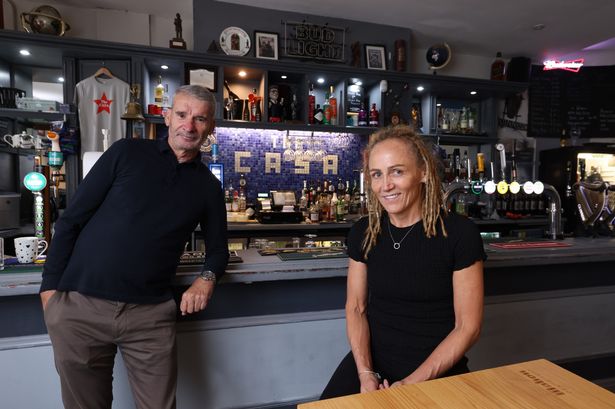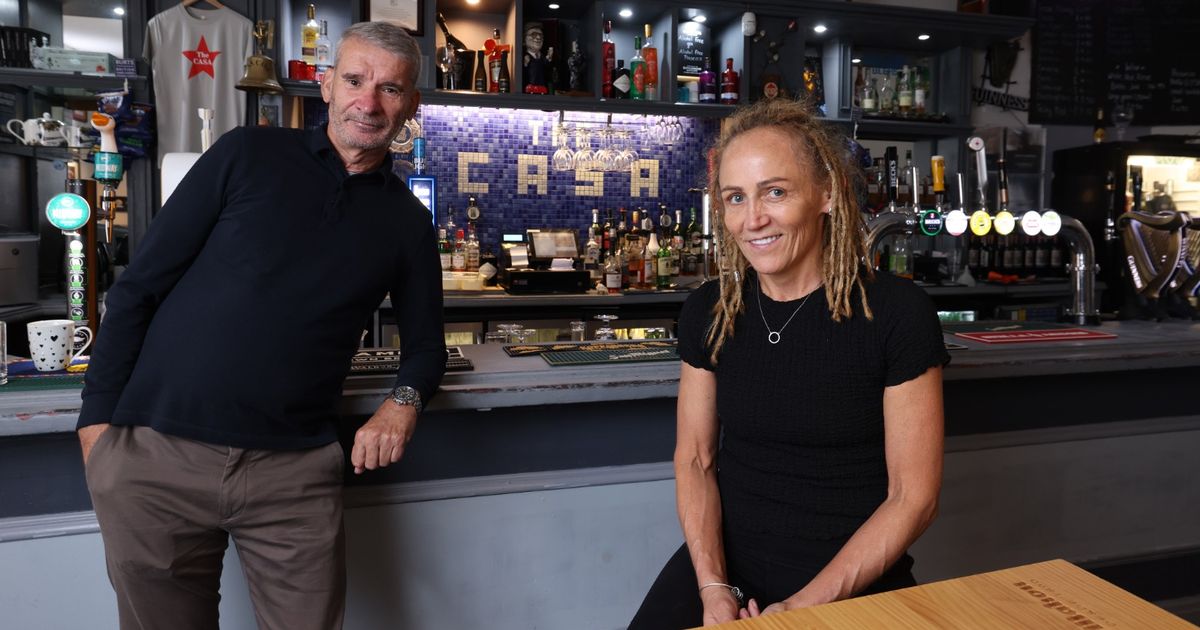Part pub, part community centre – it’s more than just a bar
12:26, 26 Jul 2025Updated 12:26, 26 Jul 2025
 Tony Nelson (left) at The Casa on Hope Street
Tony Nelson (left) at The Casa on Hope Street
If you’ve walked along Hope Street, chances are you’ve passed a pub with a name that means “home” in Spanish. The Casa is more than a place to grab a pint or celebrate a birthday; it’s one of Liverpool’s great community hubs, built from the ashes of one of the city’s most hard-fought industrial struggles.
It’s been 25 years since a group of sacked dockers turned heartbreak into hope. The 850-day Liverpool dockers’ dispute, which began in 1995, was one of the longest and most symbolic in modern British labour history. When it ended, a group of those same men – with support from the likes of Ken Loach and Jimmy McGovern – decided their story wasn’t over.
“We didn’t just want to walk away at the end of it,” said Tony Nelson, 68, one of the founding dockers behind The Casa. “We wanted to give something back.”
Thanks to half the profits from Loach and McGovern’s 1999 Channel 4 drama Dockers, The Casa opened its doors on Hope Street in December 2000. Today, it’s part pub, part community advice centre, and fully embedded in the life of the city.
Tony told the ECHO: “Over the last 25 years we’ve raised more than £23 million to support the community. All the trade unions meet here. All the charities meet here.”
Walk into The Casa on any given day and you’ll see two things: a warm, welcoming pub serving affordable drinks – including continental beers and a daily happy hour – and a quiet but vital support system operating behind the scenes.
Tony explained: “It’s basically a walk-in centre for people who just want help. People will come in, we’ll fill forms out for them, help them out and facilitate their needs. That’s what we’ve done over the past 25 years.
“People walk in off the street and ask for help – we have a coffee and a chat. Over the years, hundreds of people have come in for help. I can’t remember us ever turning anyone away. We can at least point people in the right direction.”
He added: “It’s not formal – go to your solicitor, they’ve got a suit on, there’s usually a shiny office and all the rest of it. We just want someone to be able to walk into a building, sit down, and have a coffee”
Upstairs, the charity side of The Casa operates. In the back room, trade unionists and campaigners gather. Every Wednesday at 2pm, there’s a free community storytelling group – part of a growing effort to tackle loneliness.
Tony said: “Loneliness is the biggest killer, especially in old people – it’s a terrible disease, loneliness – so we try to get people in every Wednesday, in the back, to come and tell their story. That’s 2pm every Wednesday. It’s free for everybody.
“That’s what we’re about; people can just walk into The Casa and talk to somebody.”
Despite everything The Casa has achieved, the challenges keep coming. From the 2008 financial crash to Covid-19, the venue has survived thanks to what Tony calls “old-school” community solidarity.
He said: “We’ve survived it all because people remember what we’ve done for them and they’ll come and help us out, if need be. I don’t think it’s a uniquely Liverpool thing, but Liverpool’s up there in the top cities in the UK where you get stuff like that – there’s a lot of community spirit, and I hope that keeps on going.”
It’s not just locals who support the venue. Former Labour leader Jeremy Corbyn visited recently and the organisation has received donations from around the globe.
The Casa is a space that can host a birthday one night and a union fundraiser the next. Its walls are lined with around 700 plaques – each one a reminder of someone who helped along the way.
Tony said: “It’s great. We get everybody in there. It’s just a great atmosphere with lovely people. We want to use the place for good causes. It’s got a good community spirit and it’s brilliant.
“A pub and a community centre together, under the same roof – that’s special.”
